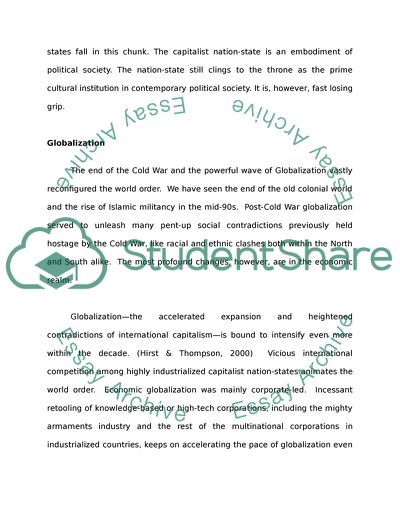Cite this document
(“Globalization and State Power Essay Example | Topics and Well Written Essays - 3250 words”, n.d.)
Retrieved from https://studentshare.org/politics/1527221-the-course-name-political-legitimacy-and-postmodern-governance
Retrieved from https://studentshare.org/politics/1527221-the-course-name-political-legitimacy-and-postmodern-governance
(Globalization and State Power Essay Example | Topics and Well Written Essays - 3250 Words)
https://studentshare.org/politics/1527221-the-course-name-political-legitimacy-and-postmodern-governance.
https://studentshare.org/politics/1527221-the-course-name-political-legitimacy-and-postmodern-governance.
“Globalization and State Power Essay Example | Topics and Well Written Essays - 3250 Words”, n.d. https://studentshare.org/politics/1527221-the-course-name-political-legitimacy-and-postmodern-governance.


